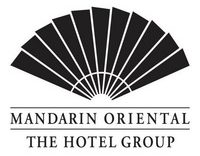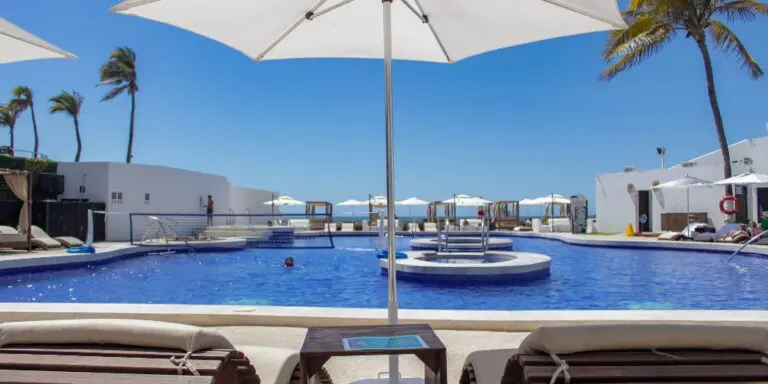Mandarin Oriental, Munich has been part of the Asian-inspired luxury hotel brand since 2000
Drawing on information from the TOPHOTELPROJECTS construction database and the London Stock Exchange, we consider how Mandarin Oriental Hotel Group’s development pipeline may be affected by Covid19.
Like many big names in the hospitality sector, Mandarin Oriental Hotel Group has had to cope with enormous challenges as a result of the Covid19 outbreak.
Founded in 1963 with the opening of The Mandarin in Hong Kong, the business now operates 33 hotels and seven residences around the world and is particularly strong in Asia, Europe and North America where, of course, the virus has wreaked havoc in recent months. But the company’s growth had been relatively rapid before the pandemic took hold; in 2019 alone, it opened four new hotels in Dubai, Doha, Beijing and Lake Como.
A member of the conglomerate Jardine Matheson Group, the Hong Kong-based luxury hotel group is the operating subsidiary of Mandarin Oriental International. The latter, which is listed on the London Stock Exchange, generated combined total revenues of US$1.33 billion and underlying profits of US$41.2 million in the 2019 calendar year.
Below, we look at how Mandarin Oriental’s development pipeline is holding up, find out to what extent the company’s share price has been affected and review its key public statements in order to get a fuller picture of Covid19’s impact.
 Mandarin Oriental’s expansion efforts
Mandarin Oriental’s expansion efforts
The TOPHOTELPROJECTS construction database indicates that Mandarin Oriental has 27 projects in progress as of 9 July 2020, with a further four schemes on hold and none cancelled.
It’s worth taking a second to reflect on this fact – 87% of Mandarin Oriental’s hotel projects are still going ahead even in this age of heightened uncertainty. Of course, there is still every possibility that other schemes will be mothballed or scrapped if the trading environment for hospitality businesses deteriorates further, but for now at least it seems as though the group remains committed to realising the vast majority of its development pipeline.
How coronavirus has hit Mandarin Oriental’s shares
For many listed companies, the stock market is a vital means of raising capital to help fund future expansion, and Mandarin Oriental’s management team will no doubt have been closely watching how the investment community has responded to the global health emergency by reassessing the value of hospitality businesses.
Interestingly, Mandarin Oriental International’s shares were trading fairly consistently at around US$1.75 per share at the start of the year; they stood at US$1.74 on 6 March, for example. But their value then fell sharply to just US$1.10 on 23 March – an extraordinary fall of more than a third in little over a fortnight.
Since then, confidence has returned somewhat, and the company’s shares were back up to US$1.50 on 14 July. This is still significantly down on the comparable figure at the beginning of 2020, of course, but their partial recovery will surely provide some comfort to those responsible for deciding whether to proceed with new hotel projects.
Mandarin Oriental strikes a cautious note in early March
When Mandarin Oriental International released its final results for 2019 on 5 March 2020, the full extent of the Covid19 crisis was not yet known, and this is reflected in the accompanying statement from group chief executive James Riley. While acknowledging that coronavirus had impacted performance, particularly in Hong Kong, he also highlighted the potential benefit of the newly renovated London and Bangkok hotels and the forthcoming reopening of Mandarin Oriental Ritz, Madrid in late summer.
“Looking ahead to 2020, I am cautious as there continues to be economic and political uncertainties in many of the markets in which we operate,” he added. “Results for the remainder of the year will depend on the duration, geographic extent and impact of the coronavirus and the measures taken to control it. At this stage, it is difficult to tell how long the situation will persist and whether the impact experienced in East Asia will extend to other parts of the world.”
The luxury hotel group counts the cost
By the time of Mandarin Oriental International’s interim management statement for the first quarter of 2020 on 9 April, however, coronavirus had really started affecting all aspects of the company’s operations.
“The group’s performance was severely impacted by the Covid19 pandemic, resulting in an unaudited underlying loss of some US$40 million in the first quarter,” the company revealed. “A majority of the group’s hotels are now effectively closed and, while most hotels in Asia remain open, they are experiencing single digit percentage occupancy levels…It is too early to forecast the duration of the impact of Covid19 on the business but, as a result of the substantial reduction in revenue and management fees from the group’s hotels, the underlying loss in the second quarter is expected to be larger than in the first quarter.”
In addition, the group told investors it was undertaking a variety of measures to manage costs and preserve cash, including suspending non-essential expenses and capital expenditure; and reducing payroll costs through unpaid leave, furloughing, voluntary salary reductions and participation in government support measures.
Green shoots of recovery for Mandarin Oriental?
In recent months, Mandarin Oriental has continued to issue a steady stream of press releases, and a couple of these give tantalising glimpses into the company’s future priorities.
On 2 June, for example, it revealed that Mandarin Oriental, Hong Kong would undergo a six-month renovation programme starting in August to refresh the top-floor dining facilities; this scheme will mark the closure of Pierre Gagnaire’s Michelin-starred restaurant after 14 years. And on 8 July, the group revealed that it would manage a major luxury hotel and branded residences development in Vienna, which is due to open in late 2023.
Of course, it remains to be seen whether these are merely isolated projects, or just the first of many new schemes set to be announced in the coming weeks and months. Mandarin Oriental’s management will undoubtedly need to pay close attention to how Covid19 plays out across its markets, but if countries are able to get the virus under control quickly, the company may yet feel emboldened to press ahead with the ambitious expansion strategy that has defined its approach in recent years.

Mandarin Oriental Hotel Group is an international hotel investment and management group with deluxe and first-class hotels, resorts and residences in sought-after destinations around the world.




